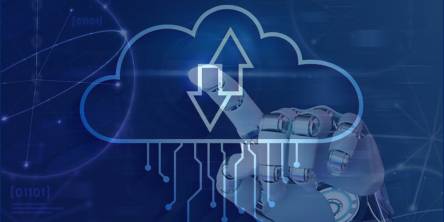All You Need to Know for Successful EHR Implementationtation

The public healthcare system was caught completely off-balance by the Covid-19 pandemic. Left clueless, it was unaware of its impact on operations & patient care. However, during this global crisis, many healthcare organizations went one step ahead with EHR implementation to reap bigger benefits in their response to the pandemic.
Of course, implementing EHR comes with a set of challenges, especially in cases of remote operations where there is a growing concern of upskilling & training staff. Delving a little deeper, healthcare providers understood how important it was for them to adapt to new ways of working and establishing a better relationship with vendors. Through this article, we aim to highlight the importance of EHR development & how both healthcare providers & patients can benefit from the same.
So, what is EHR Afterall?
In simple words, Electronic Health Record which is commonly known as EHR helps with the digital storage of patient health records. With EHR in place, clinical processes are further simplified to focus on patient-centered care. It also allows 24/7 access to critical information & from anywhere. Through this, healthcare providers can easily access the medical records of patients which includes important information like prescription, diagnoses, medication, lab results, allergies, pre-existing conditions & more. These benefits are one of the major reasons why it has gained popularity among public & private healthcare organizations.
Why is EHR Important?
Today’s unforeseen challenges call for solutions that are easy to use, automated and increase overall efficiency. As opposed to traditional health records, EHR does away with physical folders and paper processes. Data sharing has taken a big leap, from fax or copies to digital records that can be easily shared with other doctors. With EHR in place, the overall healthcare costs are significantly reduced and providers can focus on improving patient care and working more efficiently.
While EHR is an important implementation in your processes, let’s also look at some of the challenges you may face along the way. However, with the right approach and the support of an experienced IT vendor, you can overcome these challenges.
3 EHR Implementation Challenges
- Resistance to Change: Adapting to a whole new environment isn’t a cakewalk. It requires all team members to accept new processes before you set off on your transformation journey. To drive successful training, you need the right plan that properly markets the need for EHR and the major problems it can help solve. Once you have the right plan & processes in place, staff can be trained efficiently. However, there could be some cases where your staff denies training or may feel overwhelmed with all the new processes in place. So, make sure you are ready to quickly adjust to new training methods that help you fast EHR implementation.
- Data Migration: EHR means more than just dipping your toe in the digital-first world. It means soaking in completely to ensure successful implementation. The first and foremost step will require you to export all the data of physical documents onto digital records. Migrating all this data might sound impossible or too time-consuming but is the first step towards proper implementation. When you are at it or about to begin, make sure you dig up a little more on all the possible data that you can think of. This means, making a checklist of all the important data for patients and staff.
- Interoperability: In line with data migration, interoperability refers to the collection of data from various sources. It is then provided to healthcare providers who then assess, exchange & utilize data together. Interoperability plays a critical role in providing a comprehensive view of patient records. However, it still poses a big challenge as more healthcare organizations adopt the EHR route.
10 Must-Have Features You Should Consider for EHR System Development
- Electronic Document Management
- Patient Portal and Scheduling
- Medical Billing Dashboard
- Prescription Management
- Distributed Access Control
- Clinical Dashboard
- Lab Integration
- Centralized Communication
- Order Management
- Cloud Hosting
Ensuring Successful EHR Implementation
An essential part of EHR implementation is proper planning. So, layout a proper plan that assigns tasks for the responsible team and ensures that there is proper communication across members for any support that is required.
Another step for successful implementation is teamwork and collaboration. It requires strong communication across IT vendors, physicians, consultants, admin staff and other members. Each member needs to have a clear understanding of the goals before jumping right into the tasks. Also, make sure you partner with a team that is experienced in modernized IT systems to help you through the implementation process.
Lastly, understand the bigger picture. Your implementation of EHR is to help provide better patient care and help you stand out as a healthcare provider.
Wrapping Up
Today, EHR is much more than a buzz and has been widely accepted by almost every hospital and medical practice. Make sure that your EHR system meets the growing needs of your healthcare practices and is aligned with your business goals. In addition, ensure that you partner with an experienced IT specialist who delves deep into your current operations to provide you with a custom EHR development solution that best fits your practice.
Similar Articles
For modern businesses to thrive, ensuring the effective management of inventory stands has become vitally important. Inventory management stands as a cornerstone of success. And the emergence of the Internet of Things (IoT) has introduced a new era of connectivity and efficiency across diverse industries.
Do you know what the following e-commerce companies have in common: Amazon, Walmart, eBay, and more? All of these e-commerce companies' apps make use of Java. Java is decidedly among the leading choices of programming language for e-commerce applications because it offers a world of benefits; for example, since Java code can be run on any platform with a Java Virtual Machine (JVM), users of e-commerce apps made with Java can access the said apps on a variety of devices.
Nikola Tesla in 1926, once described what is now called a mobile phone as a telephone that can fit into one's “vest pocket.” As otherworldly as that idea was then, nearly a century later, the reality is even more astounding.
Given the staggeringly high amounts of data being generated worldwide every single day, it ought to come as no surprise that organizations often struggle to pick the right tools to help them effectively harness the potential of all their data.
Managing properties can be a difficult task with the right tools. Property owners must find and use the best property management software. It can be a long and tedious process as there are many options in the property management software market.
In the ever-evolving financial services landscape, industry challenges are numerous and complex. From stringent regulations to rapidly advancing technology and changing consumer expectations, financial institutions face many obstacles.
The human learning capability is a great resource for helping technology evolve and grow, breaking boundaries, and creating new ones. Emulating the ability of humans to learn at a gradual but retentive pace, Machine Learning is the latest power monster that is redefining human-machine interaction.
In the ever-evolving landscape of low-code development, Microsoft's Power Platform stands out as a powerful tool for building custom applications. In today's dynamic digital landscape, creating and managing web pages is no longer the exclusive realm of professional web developers
In the data-driven business world, where information is of utmost priority, organizations are increasingly turning to data warehousing and data marts to harness the power of their data. These data management solutions are pivotal in transforming raw data into actionable insights.









